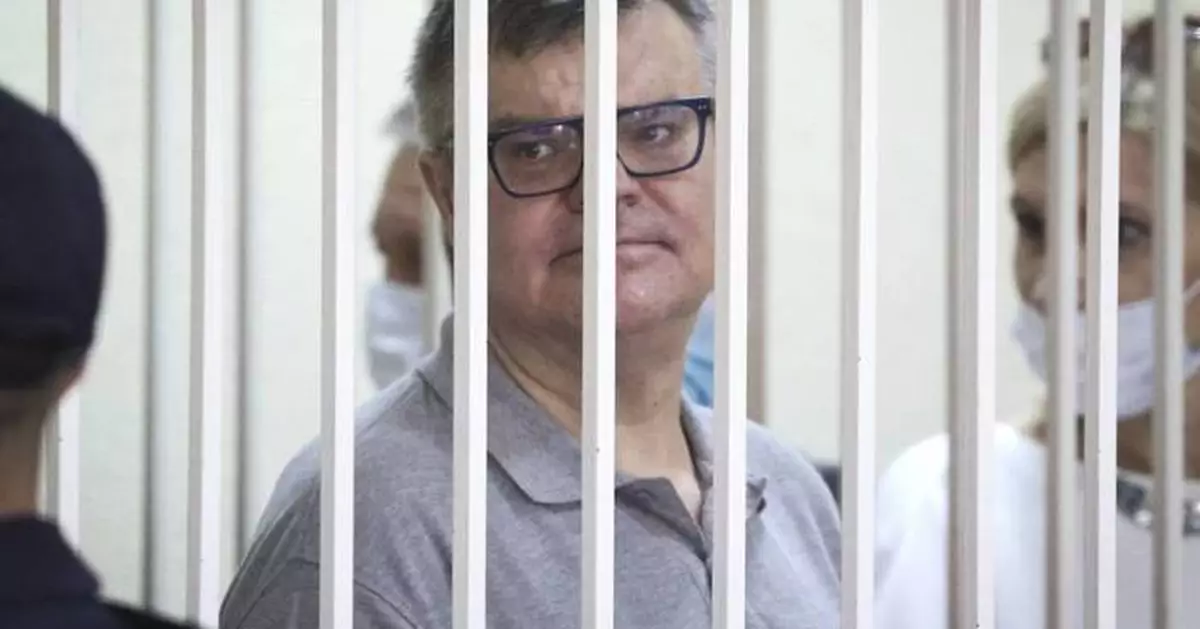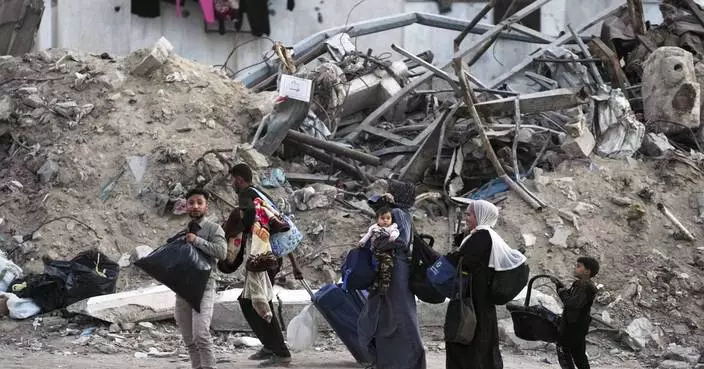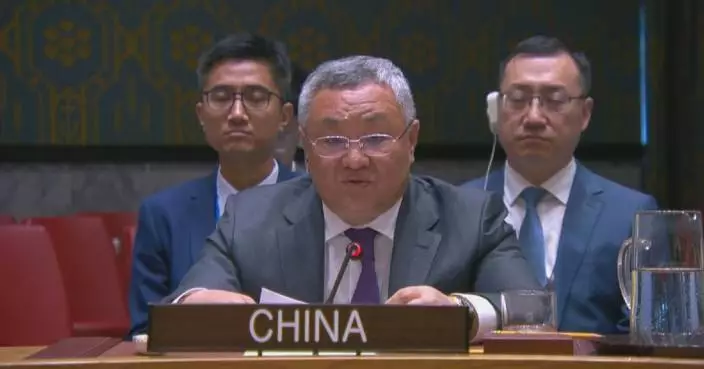TALLINN, Estonia (AP) — An imprisoned opposition activist in Belarus resurfaced Wednesday in a video shot by a pro-government blogger after over 700 days of no contact with his family, weeks before an election that is all but certain keep the country's strongman leader in power.
Viktar Babaryka, 61, has been denied meetings with his family and lawyers while serving a 14-year sentence in a penal colony after failing to get on the ballot against authoritarian President Alexander Lukashenko in a 2020 election.
Babaryka was last heard from in February 2023, and other prisoners said later that year he was hospitalized with signs of beatings. Since then, authorities haven’t released any information about his condition and barred his lawyer from visits. The European Parliament has urged authorities to release him and other political prisoners.
Raman Pratasevich, a former opposition journalist who later became a government supporter after being arrested himself, posted photos and a brief video in which Babaryka greeted his family.
It wasn't clear when or under what conditions the images were taken, and The Associated Press could not independently verify them.
Babaryka, who looked visibly thinner than in his last appearance, was pictured wearing a prison uniform bearing a yellow tag designating him as a political prisoner and thus subjecting him to particularly harsh prison conditions.
Pavel Sapelka, a representative of the Viasna Human Rights Center, noted that the images were released ahead of the Jan. 26 presidential election, in which Lukashenko is seeking a seventh, five-year term to add to his more than three decades in power.
“The authorities decided to show Babaryka in the run-up to the election to avoid accusations of forced disappearance of opposition activists behind bars,” Sapelka said. “The terribly emaciated Babaryka epitomizes the nightmare of repressions in Belarus, a sad reminder for others who dare to challenge Lukashenko.”
In November, Pratasevich posted photos of Maria Kolesnikova, another prominent opposition activist who had been held for more than 20 months without any communication with relatives or friends.
Babaryka is one of 1,258 political prisoners in Belarus, according to Viasna, the country's leading human rights group. Top opposition figures were imprisoned or fled the country amid the sweeping crackdown that followed the 2020 election. Authorities responded to massive demonstrations protesting vote-rigging with brutal repressions in which about 65,000 people were arrested and thousands were brutally beaten by police.
At least seven political prisoners have died in custody, according to Viasna.
Like Babaryka, many other opposition activists have been held incommunicado.
Lukashenko pardoned some political prisoners last year but authorities launched a new wave of arrests before the election, seeking to uproot any sign of dissent.
Opposition leader-in-exile Sviatlana Tsikhanouskaya, who was forced to leave the country after challenging Lukashenko in the 2020 vote, said she was happy to see Babaryka alive and demanded that authorities release information about others who have been held incommunicado, including her husband, activist Siarhei Tsikhanouski.
“We must now demand to see all others who have been held in complete isolation, and the cruel and inhumane incommunicado practice must stop,” she said.
Pratasevich ran a Telegram messaging app channel widely used by participants in the 2020 protests. He was living in exile when he was arrested in 2021 after being pulled off a Ryanair flight from Greece to Lithuania that was diverted to Minsk by a bomb threat. Once in custody, he made several confessional appearances on state television that critics claimed were made under duress. He was later released and pardoned.
“We consider Pratasevich a hostage. He’s doing all what is ordered by the Belarusian authorities,” Sapelka said.
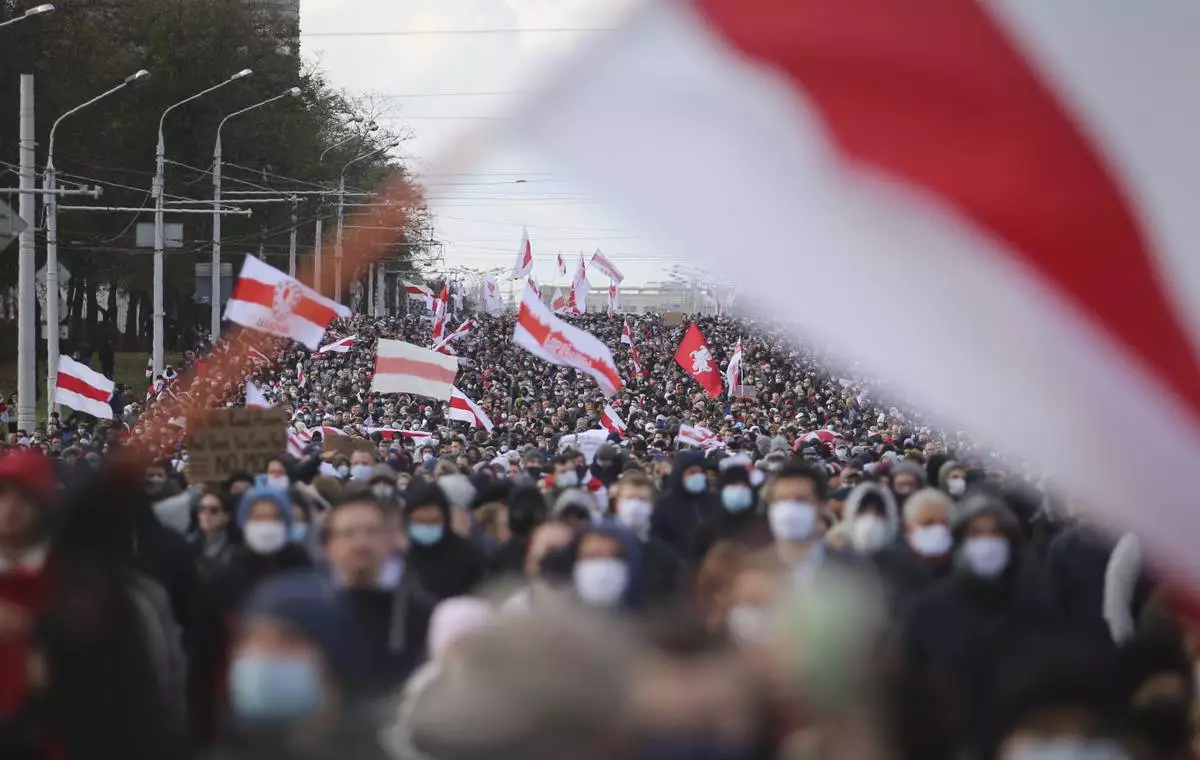
FILE - People carrying an old Belarusian national flag ,that has become an anti-government symbol, march in an opposition rally to protest the presidential election results in Minsk, Belarus, on Oct. 18, 2020. (AP Photo, File)
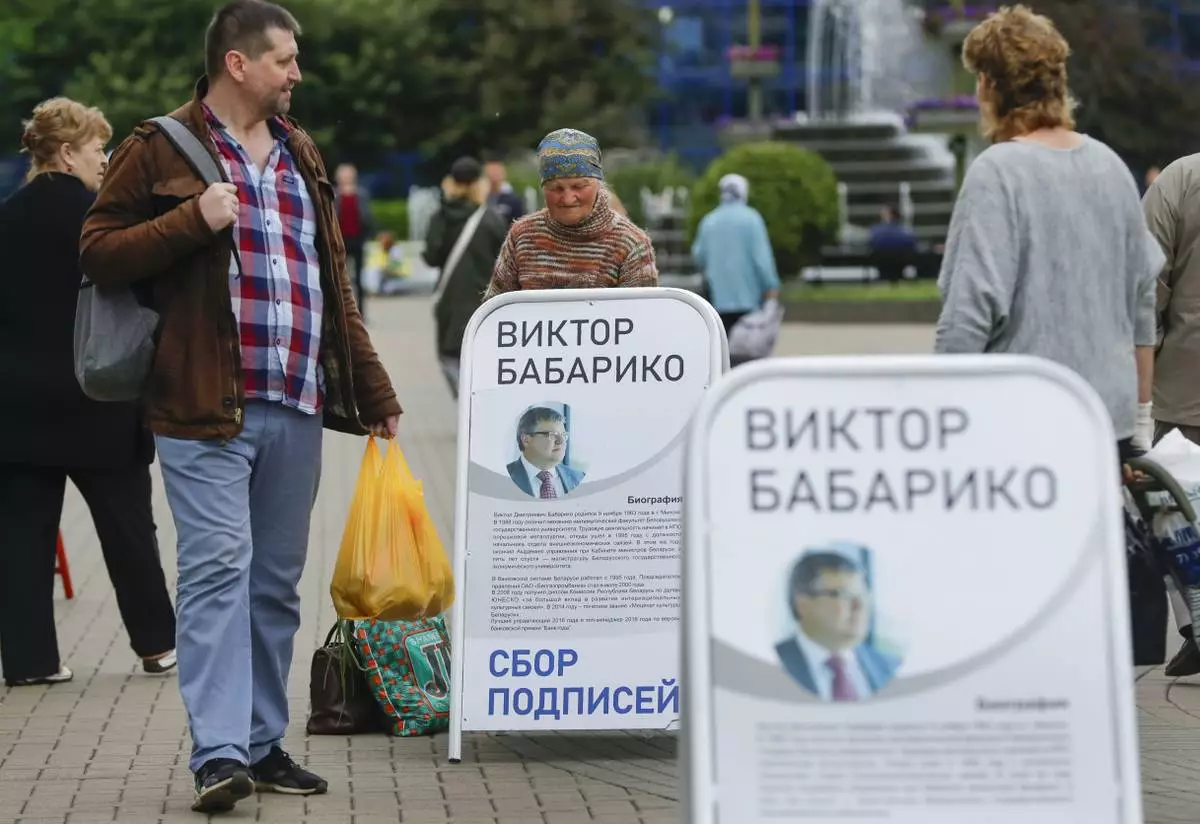
FILE - People walk past informational posters supporting Viktar Babaryka, who wanted to run in the upcoming presidential elections, in Minsk, Belarus, on June 14, 2020. (AP Photo/Sergei Grits, File)
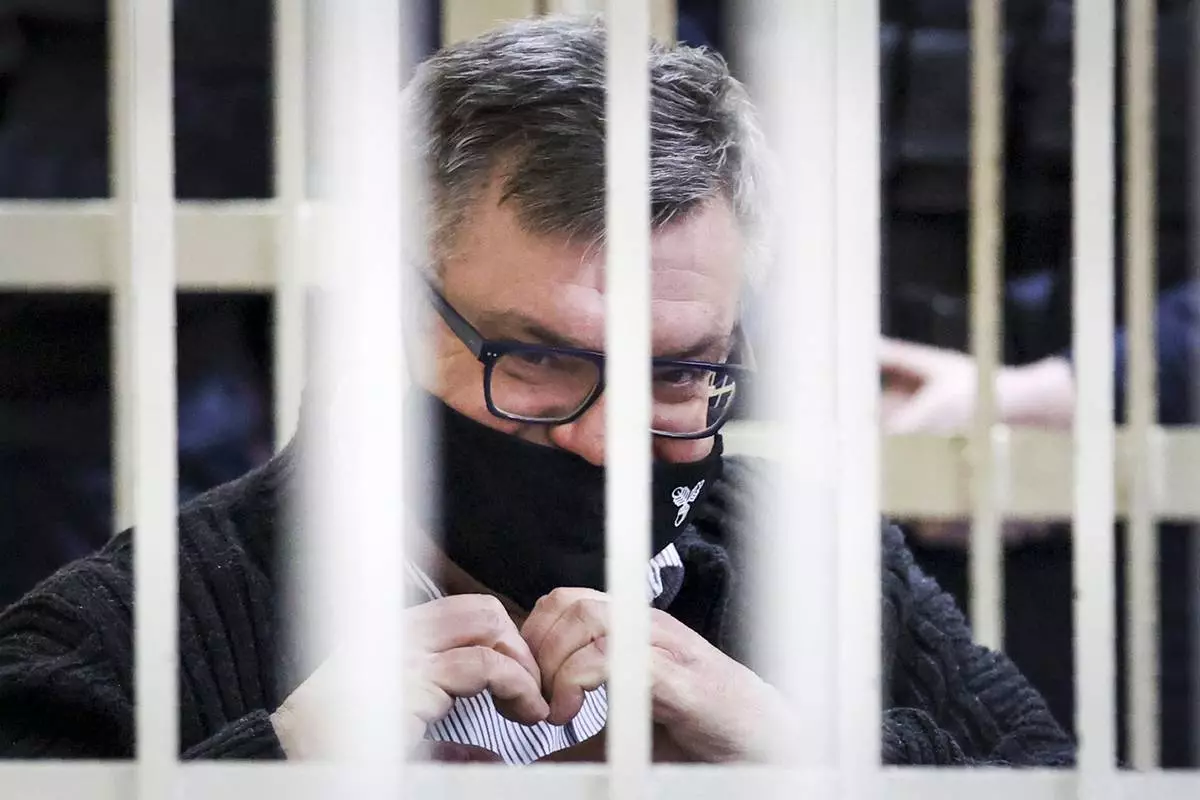
FILE - Viktar Babaryka, a former presidential hopeful, makes a heart gesture while sitting in a defendants’ cage during his trial in Minsk, Belarus, on Feb. 17, 2021. (Oksana Manchuk/BelTA Pool Photo via AP)
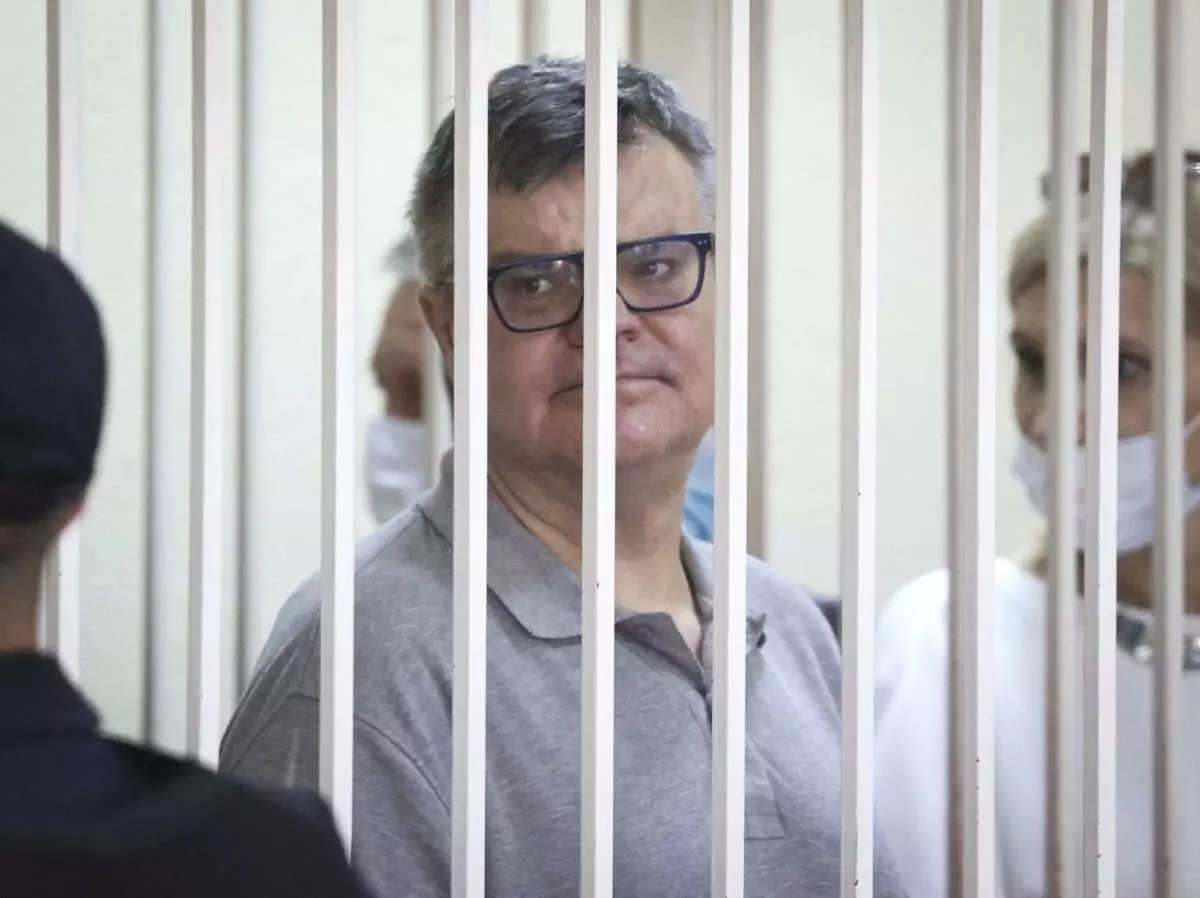
FILE - Viktar Babaryka, a former presidential hopeful, stands inside a defendants’ cage during his trial in Minsk, Belarus, on July 6, 2021. (Ramil Nasibulin/BelTA Pool Photo via AP, File)
ATLANTA (AP) — Atlanta right-hander Spencer Strider experienced a slight dip in velocity but otherwise had no difficulties in his five-inning simulated game on Wednesday.
Strider threw more than 60 pitches while facing hitters in a workout which could show he's ready to return to the Braves' rotation. It was good news for manager Brian Snitker, especially one day after seeing Ronald Acuña Jr. hit a home run with the Braves’ Florida Complex League team in North Port.
“He looked like he was fine doing everything,” Snitker said, noting Strider demonstrated he could cover first base as well as handle the simulated five innings, including the rest between innings.
The return of Strider and Acuña, the 2023 NL MVP, are obvious keys to Atlanta's hopes of recovering from their 0-7 start to make their eighth consecutive playoff appearance. The Braves returned to .500 with Tuesday night's 5-2 win over Washington.
Acuña has missed almost a full season following ACL surgery on his left knee last year. Acuña got hurt on May 26 last season and had surgery on June 6.
“I feel 100% because it's been such a long process,” Acuña said through translator Franco García before the Braves' game against Washington on Wednesday night.
Following only one game at North Port, the Braves are moving Acuña to a minor league rehabilitation assignment with Triple-A Gwinnett, beginning Thursday. The team has not said how long they expect Acuña to remain with Gwinnett before returning to his role as the Braves’ right fielder and leadoff hitter.
Acuña laughed when asked how many games he think he'll need to play at Gwinnett.
“I think you're going to have to ask the boss,” Acuña said.
Acuña played in only 49 games last season. In 2023, he hit .336 with 41 home runs and 73 steals.
Wednesday was the first time Acuña spoke with reporters since he used social media to criticize the way Snitker reacted when Braves outfielder Jared Kelenic failed to hustle on a long drive and was thrown out at second base in a 6-2 win over Minnesota on April 20.
In a similar situation, Acuña was removed from the Braves’ 5-3 win over the Los Angeles Dodgers on Aug. 19, 2019. Then only 21 but already an All-Star, Acuña was slow to leave the batter’s box on a long drive that bounced off the right-field wall for a long single. Snitker waited one inning and then took out Acuña, who posted on X that he thought Snitker handled Kelenic, who remained in last month's game, differently.
"If it were me, they would take me out of the game,” Acuña posted. He removed the post about one hour later and said Wednesday he apologized to Snitker and his teammates.
“It was just a moment of frustration for me,” Acuña said, adding that when he met with Snitker “I just apologized and asked for his forgiveness for what I posted and being a distraction.”
Acuña said being unable to contribute during the Braves' slow start, including losses in their first seven games, added to his frustration. “I talked to them man to man and admitted I was wrong,” Acuña said, adding “I think we'll be able to move on just fine.”
Strider made just two starts last season before UCL internal brace surgery on April 12, 2024. He was an All-Star in 2023, when he finished fourth in the NL Cy Young Award voting, going 20-5 with a 3.86 ERA and a major league-best 281 strikeouts.
Strider returned from the elbow surgery when he pitched five innings in a 3-1 loss at Toronto on April 16. The right-hander was placed on the 15-day injured list on April 21 after straining his right hamstring, so the Braves have continued to closely monitor the condition of his right arm and right leg.
In his return against Toronto, Strider threw a 96.7 mph fastball on his first pitch and averaged 95.4 mph with his fastball. On Wednesday, Strider topped out at 95 mph and threw more fastballs at 93 and 94 mph.
“It's something we'll have to evaluate,” Sniker said when asked if Strider will need a minor league rehab start. "... It's going to take him repetitions and starts to build his velocity back.”
Strider was not available for interviews following the simulated game.
Snitker said he planned to talk with Strider on Thursday “and see what our next course of action is.”
AP MLB: https://apnews.com/hub/mlb

Atlanta Braves Ronald Acuña Jr. and Director of Baseball Player Relations Franco García speak with the media before a baseball game against the Washington Nationals, Wednesday, May 14, 2025 in Atlanta. (AP Photo/Kathryn Skeean)

Atlanta Braves Ronald Acuña Jr. and Director of Baseball Player Relations Franco García speak with the media before a baseball game against the Washington Nationals, Wednesday, May 14, 2025 in Atlanta. (AP Photo/Kathryn Skeean)

Atlanta Braves Ronald Acuña Jr. and Director of Baseball Player Relations Franco García speak with the media before a baseball game against the Washington Nationals, Wednesday, May 14, 2025 in Atlanta. (AP Photo/Kathryn Skeean)






